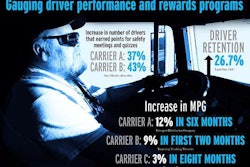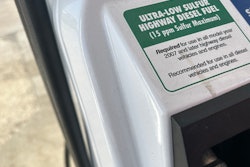
After members of a House Small Business subcommittee spent an hour questioning Federal Motor Carrier Safety Administration Administrator Anne Ferro on the agency’s methodology, timeline, data and general demeanor regarding the hours-of-service rules that went into effect July 1, the panel heard testimony from representatives from the American Trucking Associations, Owner-Operator and Independent Drivers Association and the Transportation Intermediaries Association.
Duane Long, chairman of Longistics in Research Triangle Park, N.C., spoke on behalf of ATA, voicing the group’s support for the recently introduced TRUE Safety Act, which would delay the hours-of-service rule provisions until the Government Accountability Office can assess FMCSA’s methodology.
Long said his fleet runs many teams, and their routines keep them on the road until 2 a.m. on Saturdays. Under the old rules, he said, they could take a restart and depart on their next trip Sunday evening and make a Monday morning delivery, per customer needs.
However, under the new restart provisions, his teams can’t leave again until 5 a.m. Monday, making it impossible for them to meet both customer needs and expectations, he said. “They resent the intrusion of the government on their daily work routine,” Long said. “They resent the new restart restrictions and the effect they are having on their ability to make a living.”
Echoing what some of the House panel members said of Ferro and the administration, Long said in his testimony that FMCSA “offered rhetoric, but little data, to explain why the [2003] regulations needed to be changed.”
Long also again brought to the committee’s attention FMCSA used crash data that was more than 10 years old — a data quality issue some panel members used when speaking to Ferro to make a case against the rule’s implementation. Since, he said, the number of crashes has fallen dramatically.










